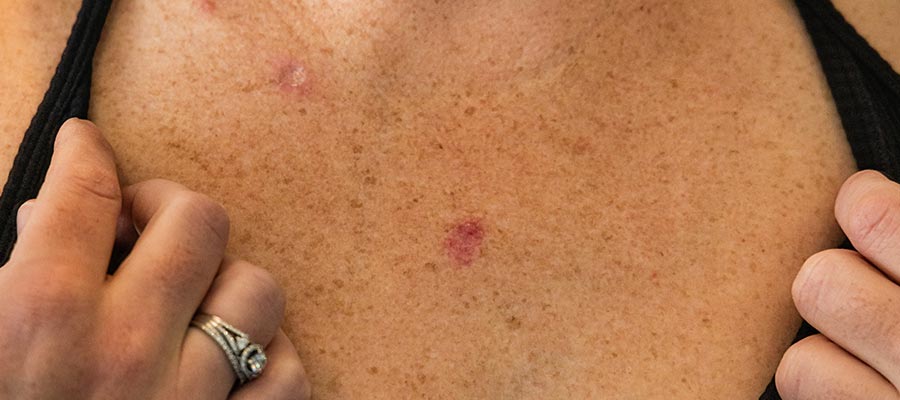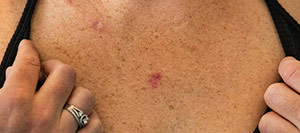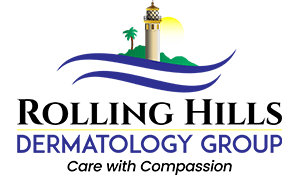Basal Cell Carcinoma Treatment Specialist in Rolling Hills Estates, CA and Seal Beach, CA
Dr. Fein provides care for basal cell carcinoma in Rolling Hills, offering thorough evaluations and personalized treatment plans. As a common type of skin cancer, early detection and proper management are key, and Dr. Fein works closely with each patient to ensure the best possible outcome. For more information, contact us or request an appointment online. We have convenient locations in Rolling Hills Estate CA, and Seal Beach CA.


Table of Contents:
What is basal cell carcinoma?
Is basal cell carcinoma a type of skin cancer?
What does basal cell carcinoma look like?
What causes basal cell carcinoma?
We are committed to helping our patients understand and prevent common skin conditions, including basal cell carcinoma—the most common type of skin cancer. Basal cell carcinoma begins in the basal cells, located in the lowest layer of the epidermis (the outermost layer of the skin). This form of skin cancer is most often caused by prolonged exposure to ultraviolet (UV) radiation from the sun or tanning beds, which is why it frequently appears on sun-exposed areas such as the face, ears, neck, and arms.
Basal cell carcinoma can present as a small, pearly bump or a flesh-colored, pinkish patch. While it tends to grow slowly and rarely spreads to other parts of the body, it can cause significant local damage if not treated promptly. Early detection is key: when caught early, most cases can be effectively treated with options such as surgical removal, topical medications, or other therapies available at Rolling Hills Dermatology Group.
If you notice any new or changing growths on your skin, we encourage you to schedule an appointment with our experienced dermatology team. Regular skin checks and early intervention are the best ways to protect your health and achieve the best possible outcomes. At Rolling Hills Dermatology Group, your skin health is our top priority.
Basal cell carcinoma is the most common type of skin cancer, originating from the basal cells located in the deepest layer of the epidermis—the outermost layer of your skin. This form of cancer typically appears on areas frequently exposed to the sun, such as the face, neck, and arms. While basal cell carcinoma generally grows slowly and is less likely to spread than other types of skin cancer, early detection and treatment are crucial to prevent potential damage to surrounding skin and tissues.
Our experienced dermatologists specialize in the early diagnosis and effective treatment of basal cell carcinoma and other skin cancers. If you notice any unusual changes in your skin—such as a persistent sore, a new growth, or a change in an existing mole—we encourage you to schedule a skin evaluation with our team. Early intervention can make a significant difference in outcomes and help maintain your skin’s health.
Your skin’s health and safety are our top priorities. Contact Rolling Hills Dermatology Group today to book your appointment or to learn more about our comprehensive skin cancer screening and treatment services.
We frequently diagnose and treat basal cell carcinoma (BCC), the most common type of skin cancer. BCC can appear in many forms, but it often shows up as a small, shiny bump or nodule with a pearly or translucent look. These lesions may be flesh-colored, pink, or slightly red, and, in some cases—especially among individuals with darker skin tones—they can appear brown, black, or even blue. As BCC progresses, the bump may slowly grow and develop a central depression or ulcer that can bleed, scab, or fail to heal completely.
Some patients notice a flat, scaly patch with a slightly raised, rolled edge, rather than a bump. BCC most often develops on areas exposed to the sun, such as the face, ears, neck, scalp, shoulders, and back. You might also notice visible blood vessels (telangiectasia) on the surface of the lesion.
Our board-certified dermatologists emphasize the importance of early detection and evaluation. If you notice any persistent, changing, or unusual spot on your skin, we encourage you to schedule an appointment. Prompt diagnosis and treatment are key to managing basal cell carcinoma and maintaining healthy skin.
Understanding Basal Cell Carcinoma: Information from Rolling Hills Dermatology Group
At Rolling Hills Dermatology Group, we are committed to educating our patients about the causes and prevention of common skin cancers, including basal cell carcinoma (BCC). Basal cell carcinoma is the most frequently diagnosed form of skin cancer and is primarily linked to long-term exposure to ultraviolet (UV) radiation from the sun or from tanning beds.
Over time, UV rays can damage the DNA in your skin cells, particularly those in the basal cell layer of the epidermis. This damage can lead to abnormal cell growth and the eventual development of skin cancer. While sun exposure remains the leading risk factor, BCC can also occur in areas of the body that are not routinely exposed to sunlight. Other contributing factors include a past history of radiation therapy, contact with certain chemicals like arsenic, a weakened immune system, or rare genetic conditions such as basal cell nevus syndrome (Gorlin syndrome).
Certain individuals are at higher risk, including those with fair skin, light-colored eyes, and a tendency to sunburn easily, as they have less natural protective melanin in their skin. Age is also a factor, since the risk of basal cell carcinoma increases with cumulative sun exposure over the years.
While basal cell carcinoma is rarely life-threatening, early detection makes treatment easier and more effective. Our team encourages regular skin checks and the use of preventive measures—such as wearing sunscreen, protective clothing, and avoiding peak sun hours—to lower your risk.
If you have concerns about your skin or notice any new or changing spots, please schedule an appointment with our dermatology specialists. We’re dedicated to helping you maintain healthy, cancer free skin. For more details, contact us or book an appointment online. We serve patients from Rolling Hills Estate CA, Torrance CA, West Carson CA, Lomita CA, Palos Verdes Estates CA, Hermosa Beach CA, Manhattan Beach CA, Redondo Beach CA, Seal Beach CA, Rossmoor CA, Garden Groce CA, Santon CA, Westminister CA, and surrounding areas.
Check Out Our 5 Star Reviews


Additional Services You May Need






